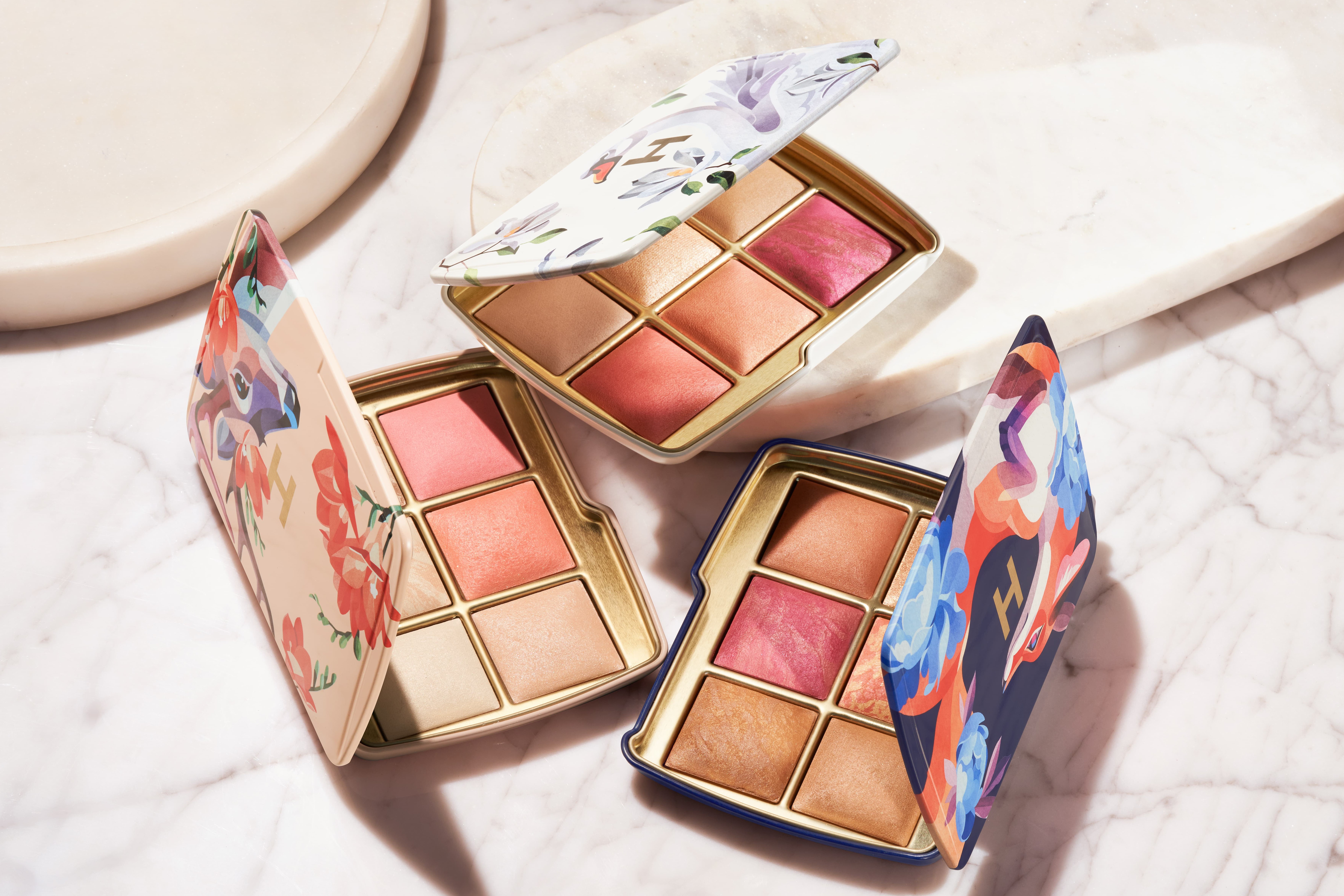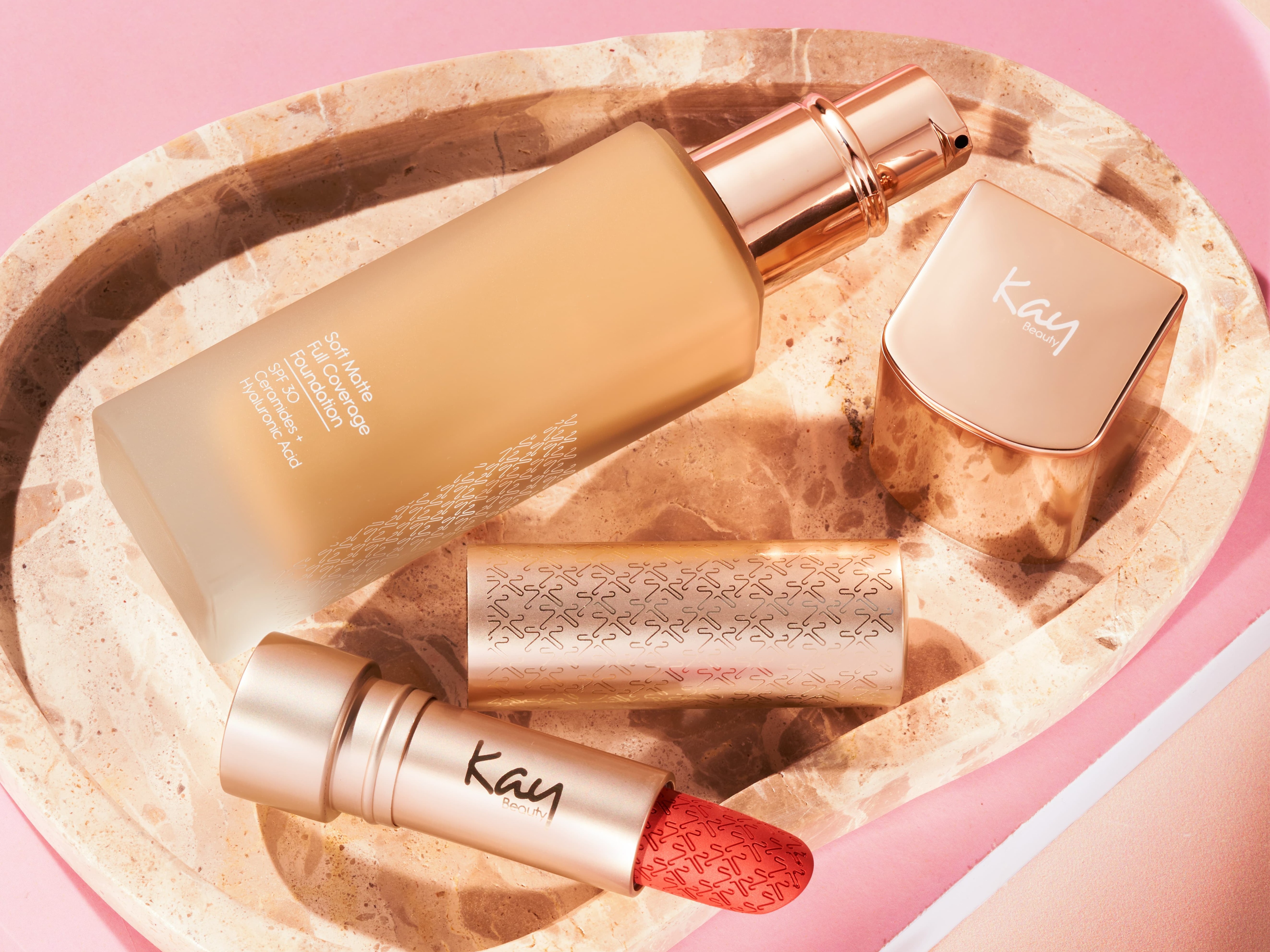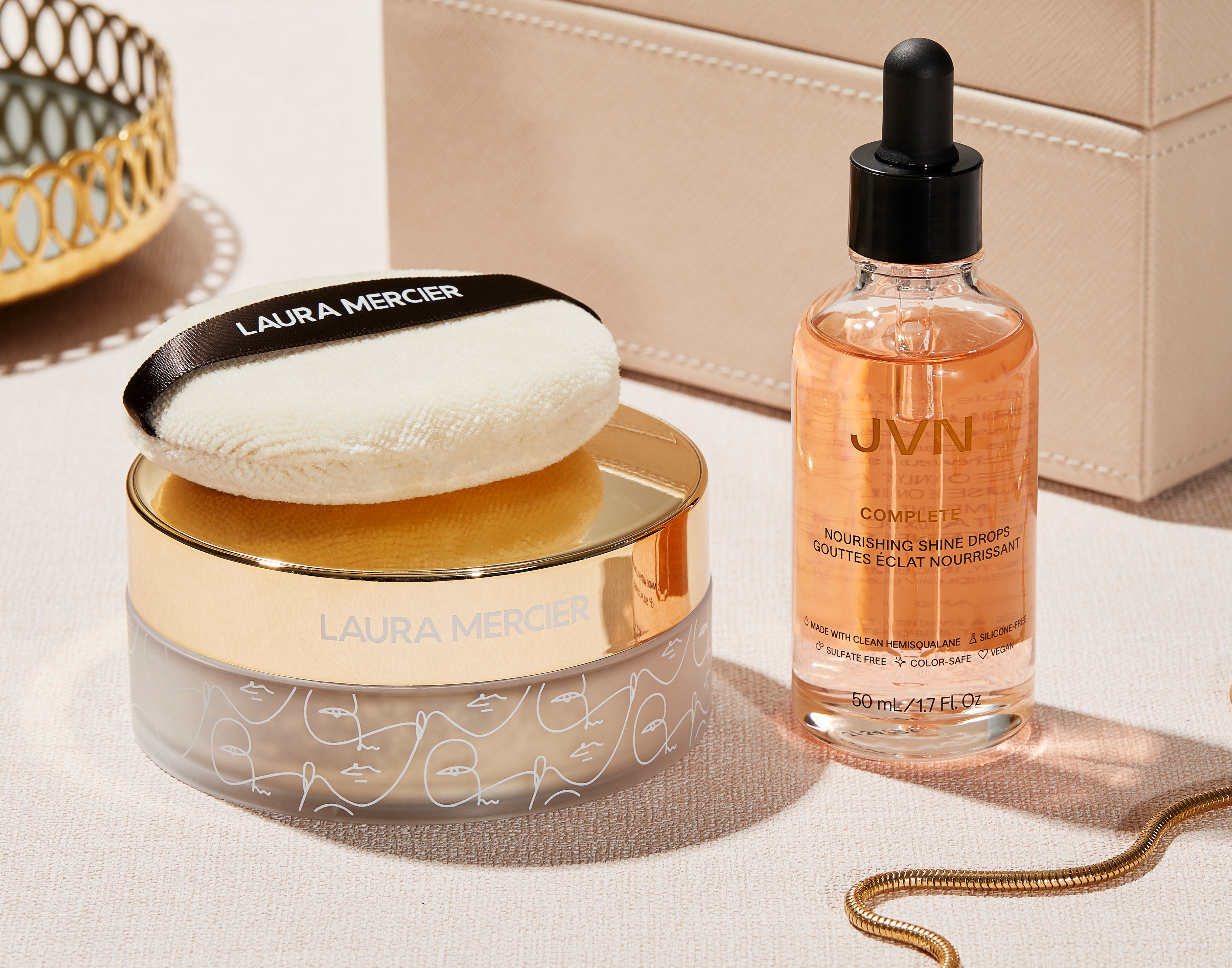How To Use Vitamin C And Retinol Together
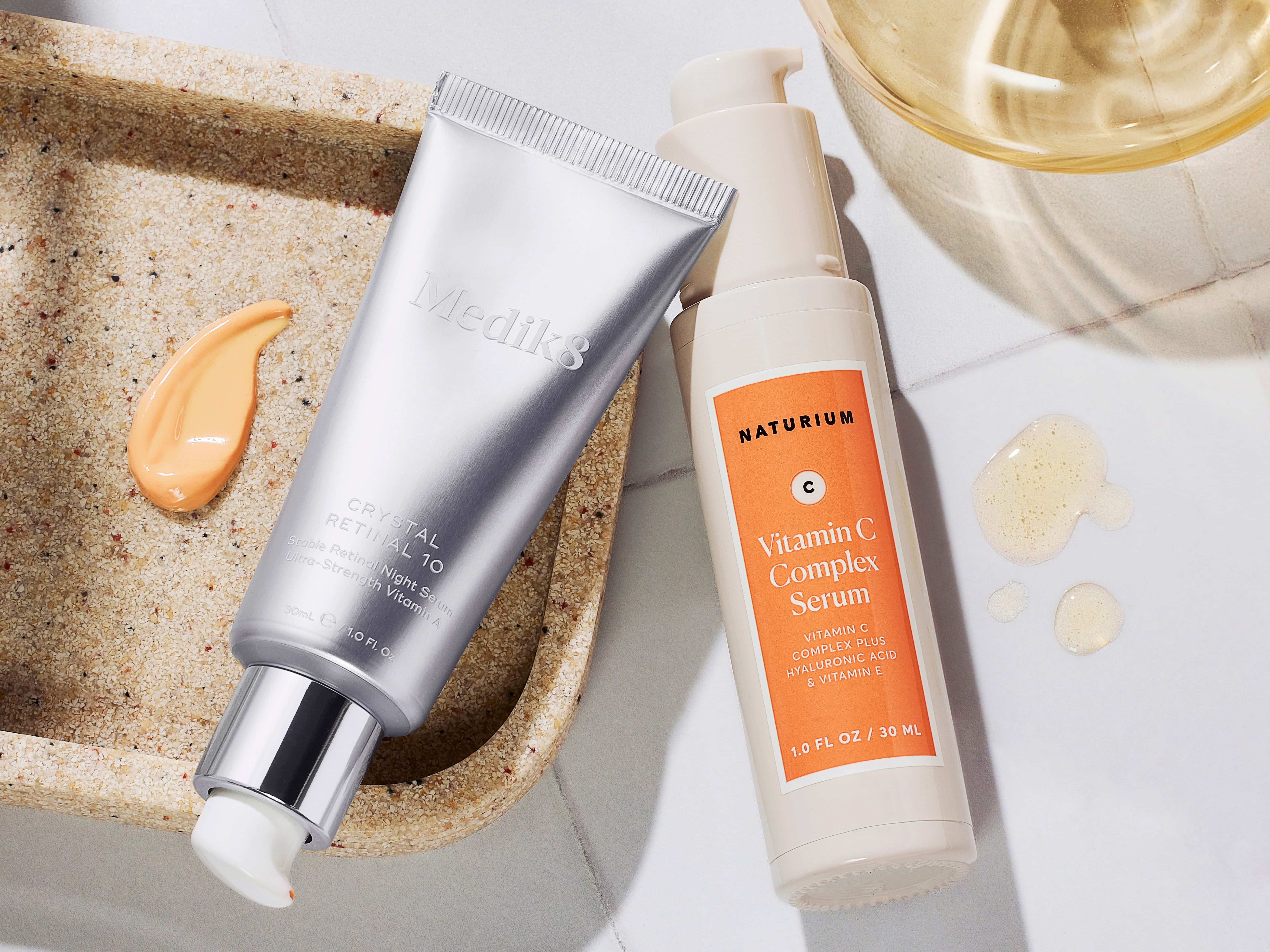
It’s likely you’ve tried or are planning to include at least one of these star ingredients into your skincare routine. Moreover, given how hardworking and potent both vitamin C and retinol are, it’s also likely you’ve heard a lot of discussion – and contradicting information – on whether it’s safe to use them together. Fear not – we’ve done the hard work for you and taken a deep dive into the wonderful world of gold standard skincare to lay out the facts on whether you can get the best out of both. The answer might surprise you…
The Benefits Of Vitamin C Skincare
If vitamin C, also known for its form of ascorbic acid, makes you think of all things zesty, you’re on the right track. It is a component found in citrusy fruits as well as vegetables that’s bursting with antioxidant properties and benefits from both a nutritional and skincare perspective.
On the skincare front, the list of benefits is long and promising. Firstly, vitamin C is considered the ultimate glow-giver. Shown to inhibit melanin production, it works to fade dark spots, redness and hyperpigmentation and smooth the skin’s surface – helping unveil a radiant complexion. Recent studies suggest it helps the skin retain moisture better and, while it’s not a replacement for SPF, it can protect skin from UV light and other environmental damage.
It's also believed that vitamin C boosts the production of collagen, the built-in proteins in our bodies that support and strengthen skin, muscles, bones and connective tissues. Essentially, vitamin C can contribute to the reduction of fine lines and wrinkles and make skin looking supple, soft and firm.
The Benefits Of Retinol Skincare
Impressed by the perks of vitamin C? Retinol doesn’t fall behind either. This collagen-boosting ingredient, a derivative from the vitamin A family, has revolutionised skincare thanks to its ability to improve the appearance of fine lines and wrinkles by encouraging cell renewal. But it doesn’t stop at that. Retinol has a slight exfoliating effect on the skin that helps decongest pores. This means that it’s a great ingredient for managing blemishes and acne-prone skin and potentially preventing future breakouts.
Can You Mix Vitamin C And Retinol?
Both vitamin C and retinol are potent, hardworking ingredients, and when it comes to introducing any kind of active ingredient into your skincare routine, you should proceed with caution. Overall, vitamin C is considered a great option for all skin types and is ideal for morning skincare routines. You’ll want to be careful with the strength you use, as some brands offer high-concentration vitamin C formulas, and work out your skin’s tolerance.
As for retinol, there’s no denying that skin can react and get initially irritated by it. But for the most part, it will build a tolerance towards retinol over time and learn to love it!
So, can you mix vitamin c and retinol? In short, you can. Discussions as to whether vitamin C and retinol can not only damage the skin barrier, but essentially cancel out each other’s work, are prevalent. However, Heather Wish, Paula's Choice Skincare Education Manager in the UK, wants to set the record straight on this much-discussed topic. “There is no research anywhere that supports the claim that retinol is deactivated when combined with acidic ingredients,” she says. “But there’s plenty of research that demonstrates the opposite. Vitamin C, depending on the form, requires a low (acidic) pH or no pH to remain stable. We know retinol works well in an acidic environment and that skin's pH is naturally acidic – so from what the research shows, there’s no problem pairing vitamin C and retinol.”
Furthermore, rather than disrupt each other, these two ingredients can work wonders together. “Research has shown that combining vitamins gives the best results,” says Heather. “Teaming retinol, which is a type of vitamin A, with vitamin C helps to defend skin against free radicals when applied under sunscreen, and vitamin C actually helps retinol work better! It fights free radicals, a process that helps protect retinol from oxidation as it penetrates skin – thereby increasing the ageing-support benefits!”
Can You Use Vitamin C In The Morning And Retinol At Night?
Do you feel ready to level up your skincare vitamins game, but are unsure when to use retinol and vitamin C? We’ll always recommend to, as a starting point, stick to retinol in the evening, and use vitamin C in the morning – and always layer your skincare products starting from the lightest texture to finishing with the heaviest texture. Also, while one form of retinol is enough per skincare session, you can potentially use a vitamin C serum and vitamin C moisturiser in your morning routine – just be mindful of the strength of these.
Such are the wonders of these gold star ingredients that some brands have created formulations that feature both retinol and vitamin C. If you consider yourself a seasoned vitamin A and C user, these products could be a great option for you to reap the benefits of these two ingredients in one go.
What Are The Risks Of Using Vitamin C And Retinol Together?
It’s important to remember that every skin has its own needs and story, and not everyone is going to react in the same way to active ingredients. Some people may have sensitive skin that is simply too easily affected by the combination of retinol and vitamin C, and could suffer from redness, irritation and peeling. Hence why it’s vital to be cautious when introducing either of these ingredients into your skincare routine. Some trial and error is inevitable, but go for gentle formulations and pay attention to how your skin reacts. The good news is that it’s unlikely your skin will dislike both ingredients – so you’ll almost certainly get to reap the benefits of at least one of them!
Best Products With Retinol And Vitamin C
From Dr Dennis Gross to Paula's Choice, Sunday Riley, Medik8, Naturium and plenty more, you’ll find many skincare brands have come up with both beginner-friendly and next-level retinol and vitamin C formulas. As a starting point, we’ve handpicked what we believe are some of the best vitamin C and retinol products for you…
Paula's Choice
0.3% Retinol + 2% Bakuchiol Treatment, £61.00
Best Retinol Product For Retinol Beginners And Sensitive Skin
This gorgeous serum has been formulated with bakuchiol, considered by many a natural retinol alternative. When paired together, the skin-healing ingredient that is bakuchiol will help stimulate the efficacy of retinol. Start by using it in the evening only two to three times a week.
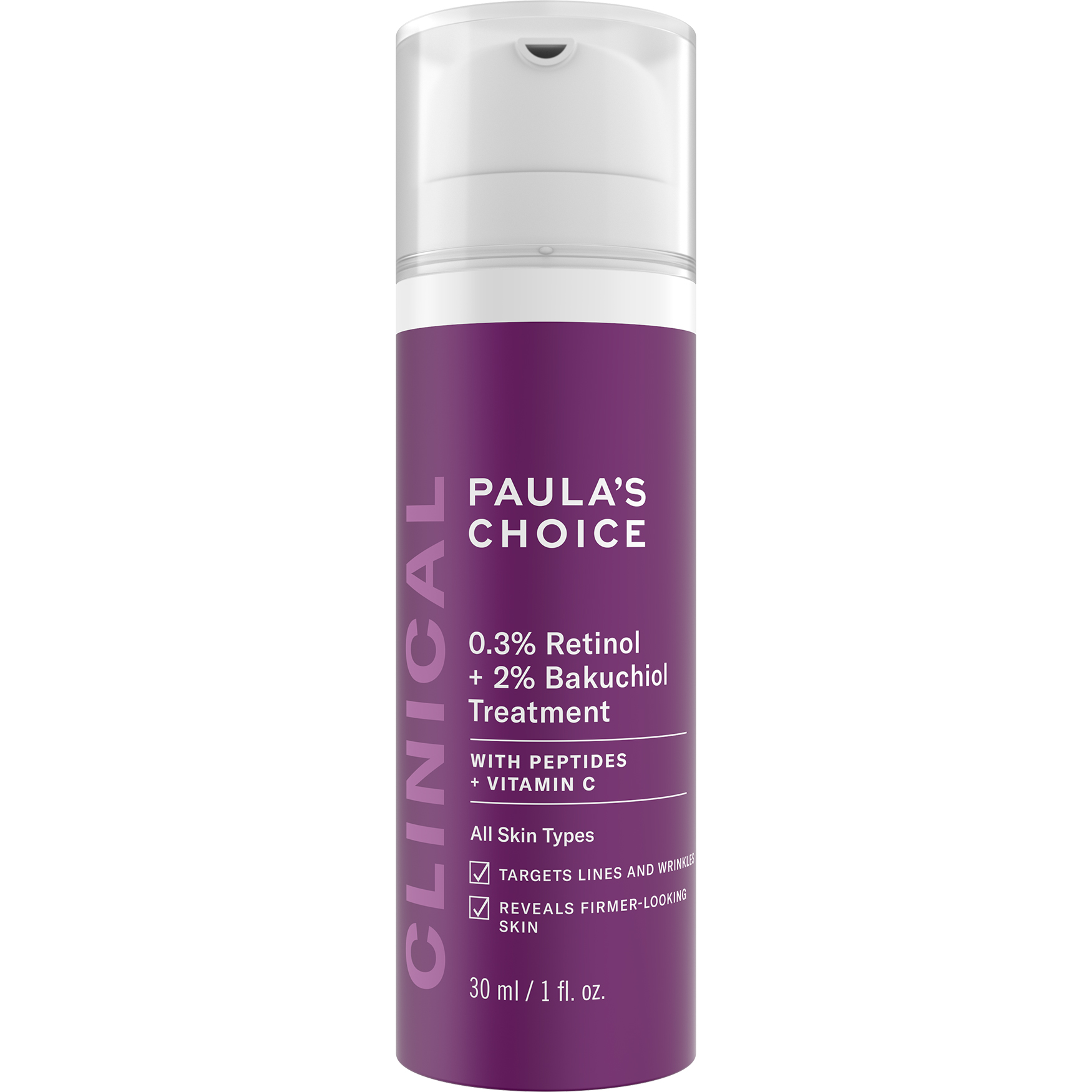
Dr. Dennis Gross
Vitamin C + Lactic Dewy Deep Cream, £77.00
Best Vitamin C Moisturiser For Normal, Dry And Sensitive Skin Types
Want a moisturiser that not only reveals a luminous complexion, but also feels like heaven on the skin? You’ll fall in love with this luscious face cream, which features a perfect blend of vitamin C, lactic acid, niacinamide, squalane and ceramides to reduce fine lines and amp up the radiance.
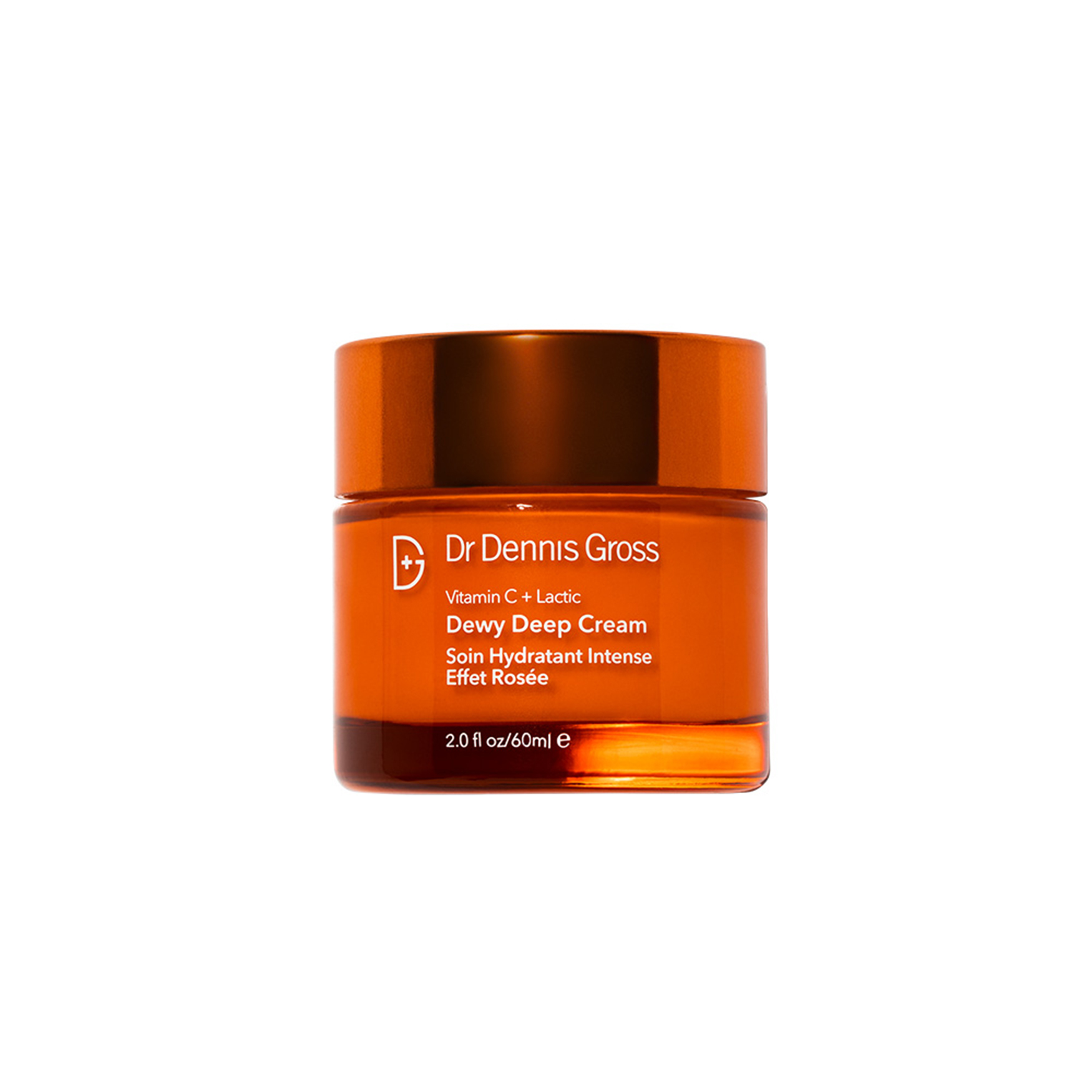
NATURIUM
Vitamin C Complex Serum, £13.00
Best Vitamin C Serum On A Budget
Formulated with a stabilised form of l-ascorbic acid, this glow-giving bestseller helps defend skin from environmental stressors and is perfectly hydrating thanks to its inclusion of hyaluronic acid. It can be used day and night, although we especially love it in our morning routines.

Medik8
Crystal Retinal 10, £89.00
Best Vitamin A Serum For Regular Retinol Users
A big part of Medik8’s philosophy is celebrating the use vitamin A in the evening and vitamin C in the morning, so it’s no surprise it has some of the most in-demand formulas in the beauty business. This treatment is for avid vitamin A enthusiasts, as it’s powered not by retinol, but by retinaldehyde – a super form of vitamin A.
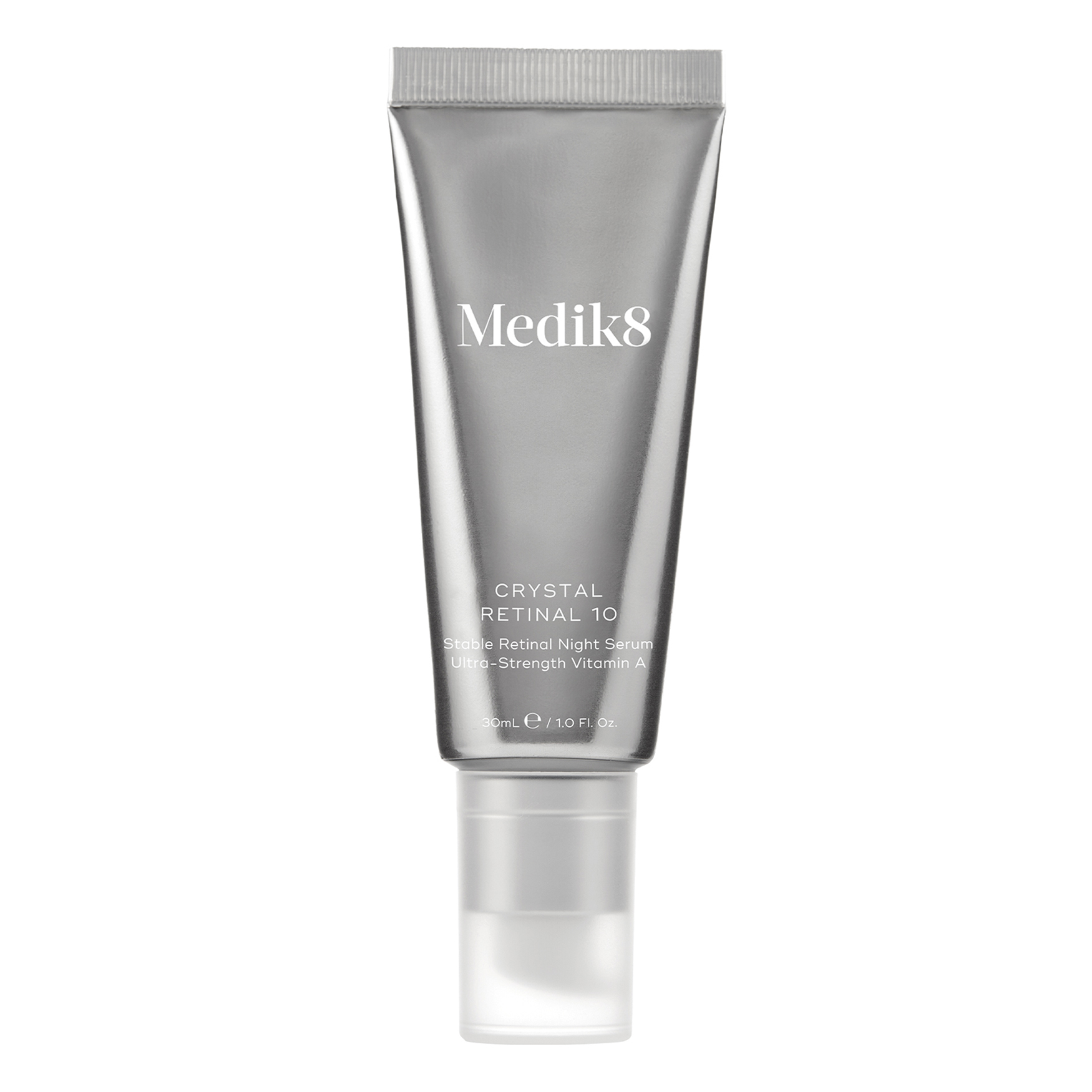
Kate Somerville
Retinol Vitamin C Moisturizer, £98.00
Best Vitamin C And Retinol Night Cream
Love vitamin C, retinol and multi-tasking? Then this night cream may be your best friend. It’s been formulated with both of these superstar ingredients to firm, smooth, nourish and brighten skin overnight – while improving its texture, tone and the appearance of fine lines and wrinkles in the long run. It’s a powerful product, so use it no more than four times a week.
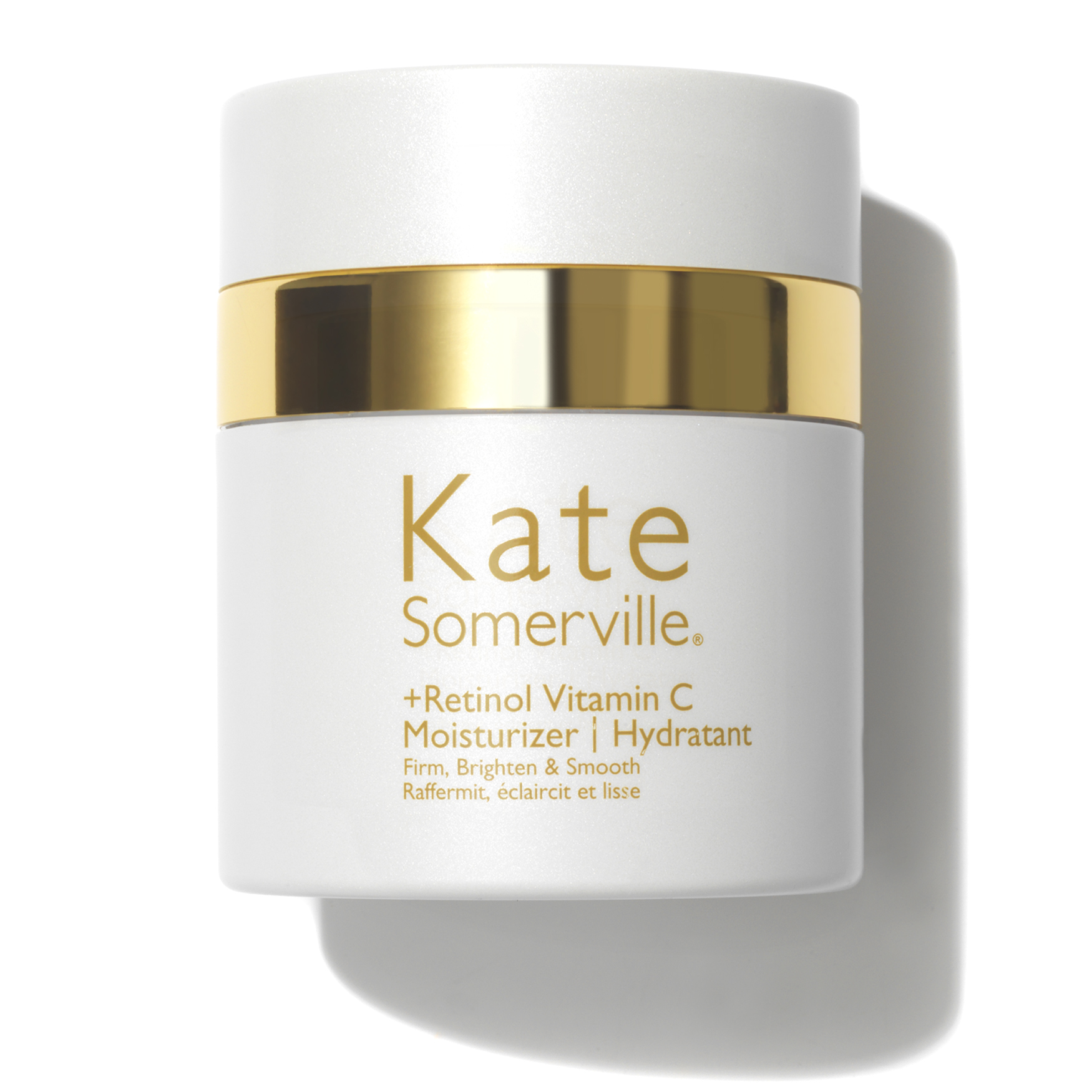
Our Takeaway On How To Use Vitamin C And Retinol Together
Caution and consistency are key. Be kind to your skin when starting your vitamin C and retinol journey – and be patient when it comes to seeing results. Look out for percentages, formulations that combine retinol and vitamin C with more soothing ingredients to counteract their potent effects, and always wear SPF. “When introducing actives into your routine, just remember to go slow and steady,” says Heather, “And always wear sunscreen with a minimum SPF30.” Another tip? Keep your retinol and vitamin C products safely stored and away from any sunshine! Vitamin C products especially can lose their efficiency when exposed too frequently, so make sure you’re careful when using them and storing them. Now – are you ready for bright, smooth and supple skin?
Read More
• Benefits of vitamin C for Skin• Benefits of Hyaluronic Acid • The Difference between Retinol and Bakuchiol
• The Best Cleanser for Every Skin Type



